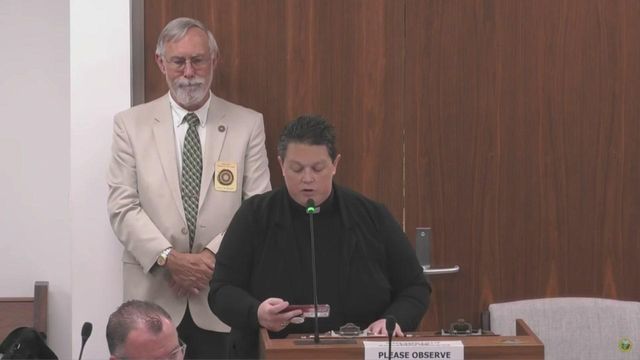NC Republicans downplay Trump attorney's role in election law changes

Top legislative leaders are seeking to downplay the involvement of a former Trump election lawyer in the crafting of a Republican effort to rewrite many of North Carolina’s voting laws ahead of the 2024 election.
Senate leader Phil Berger told reporters Thursday that Cleta Mitchell, one of then-President Donald Trump’s main attorneys during the 2020 election, “has had no role in the crafting of this legislation.” His comments came a day after WRAL reported that Mitchell had met with state legislative leaders on a wide-ranging elections bill — which was publicly filed Thursday, not long after Berger’s comments.
Senate Bill 747 proposes a number of changes, including more restrictions on mail-in voting, a ban on counties receiving grants to help fund elections, changes to the rules for same-day voter registration, a rule to make it easier for people to formally accuse others of voter fraud, and more.
The proposal also requires elections boards to acquire and use signature verification software for absentee ballots. Critics, including advocacy groups for senior citizens, say this can lead to disenfranchisement because handwriting changes are common as people age.
Mitchell worked heavily to overturn the 2020 presidential election. She was part of the call on which Trump pressured Georgia officials to “find” enough extra votes for him to win the state, something a Georgia grand jury has been investigating for potential criminal charges.
Mitchell has been spotted at the state legislature in recent weeks, and a private document from her group, obtained by WRAL, shows that she and another conservative activist, Jim Womack, had a meeting scheduled last week with three top Republican state senators “to review proposed content for the omnibus bills.”
One of them, Sen. Ralph Hise, R-Mitchell, confirmed that he met with Mitchell about the new elections bill. But he met with plenty of other people, too, he said.
House leaders might file their own version later, he said.
Legislative leaders stressed that just because lawmakers met with Mitchell about the elections bill, it doesn’t mean she wrote it.
“Legislators are writing the legislation,” Berger said.
“Our folks are sort of caught between a rock and a hard place,” he said. “... If they meet with someone then all of a sudden you see all this interest in it. If you refuse to meet with someone, they go and tell folks, ‘They won’t even talk to us.’ But I can tell you, she has had no role in the crafting of this legislation.”
Berger suggested that nothing Mitchell or her group, the Elections Integrity Network, said was able to influence lawmakers’ decisions on the bill.
“I can just tell you that group, Ms. Mitchell, or anyone else, has not written the bill,” Berger said. “Has not markedly, or to any appreciable extent that I know of, changed what the members were intending to do.”
House Speaker Tim Moore said the same thing Thursday when asked how much influence Mitchell has had over the changes: “None that I know of,” he said.
Mitchell and Womack were indeed unsuccessful in convincing lawmakers to go as far as they wanted on some topics, notably further voter ID restrictions, according to notes provided to WRAL that were taken by an attendee of a meeting that Womack and others held after their meeting with Hise and other lawmakers.
Mitchell declined an interview request. The contents of the notes are consistent with how lawmakers described details of the bill in interviews with WRAL.
The notes show that while Womack and others were frustrated on the voter ID front, they did believe they won over the senators on issues related to poll observers — and that they believed about two-thirds of what they asked for would make it into the bill. The notes say the senators referred them to a top legislative Republican staff attorney often tasked with writing elections laws and so they planned to be in touch with him as well. That lawyer couldn’t immediately be reached for comment Thursday.
Hise told WRAL Wednesday that while he did talk to Mitchell about the bill, he also talked to plenty of other people and groups, even including some that have sued him over elections laws and redistricting in the past.
Bob Phillips, the executive director of Common Cause North Carolina — which successfully sued the legislature over gerrymandering in 2019 — said he briefly spoke with Hise about elections law recently, voicing some concerns he had about what might be in the bill.











